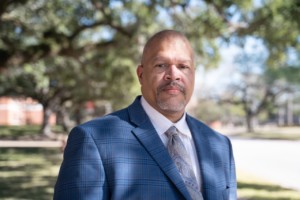The fact that Americans are moments away from a day of service in honor of the Rev. Dr. Martin Luther King Jr. should be an encouraging moment for social justice activists. However, the reality that many of King’s goals remain unfulfilled subdues such optimism.
A cursory examination of today’s political arena and culture wars proves that America is moving further from the racial utopia MLK desired. Although the failure to achieve racial equality is disappointing, there appears to be an increasing disinterest in Dr. King’s legacy by many Americans, particularly African American collegians and youth. To the dismay of older Blacks, MLK is relegated to little more than an inconsequential historical figure.
It has been my experience that at some point in our engagement, students will remind every educator over 40 that they are old. Many students will go so far as to challenge the relevance of anything that happened before 2000. For far too many of them, the past is just that, in the past, and matters not. Unbeknownst to such people, the loss of historical knowledge leads to an inability to understand the world around them.
Although I am sure that many of my generation are eager to attack Black youth for their cavalier attitude toward Dr. King, in actuality, the blame is ours, not theirs. While other groups embrace their historical struggles and often convert them into political currency, many Blacks have distanced themselves from a rich historical past. The alluded-to historical past is filled with lessons that inform their present situation and hold the potential to illuminate a path toward progress.
Unfortunately for Black America, the consequences of ignoring the historical record have contributed to MLK Day being little more than a ceremonial, cultural obligation devoid of power or political intent. Consider for a moment how few of our community members have no intention of doing anything for MLK Day beyond assembling for breakfast to hear a recitation of Dr. King’s “I have a dream” speech.
If Americans are interested in quelling the innumerable social conflicts (racism, hatred, bigotry, income inequality, etc.) that afflict this nation, they must revisit MLK’s legacy. We must cease overreliance on Dr. King’s most famous moment while ignoring other meaningful and impactful moments. Our focus must shift to mining MLK’s post-March on Washington writings and speeches for solutions to contemporary problems.
During the final five years of his life, MLK displayed the courage to address this nation’s most pressing issues. Many would be shocked to learn that during this period, King angered allies by offering conditional support for Black Power, publicly criticized white liberals, and took American politicians to task for skewed priorities that allowed them to prioritize the Vietnam War over the poverty impacting millions of Americans. This nation undoubtedly needs the insight and morality of the post-March on Washington Movement MLK now.
There is no room to argue against the assertion that America needs MLK’s wisdom, guidance and courage today as much as it did 60 years ago. To the chagrin of many, America’s prince of peace recognized, addressed and provided solutions to a host of social cancers that continue to haunt this nation. Unfortunately, until Dr. King’s legacy is thoroughly reviewed and activated by today’s activists, the social cancers highlighted by the prince of peace will continue to shadow us.
So, on this MLK Day, make it a point to do something that would garner the approval of Dr. King. This world needs your activism, and Dr. King’s legacy is worthy of such a contribution.
James Thomas Jones III, Ph.D., M.A., M.A., M.A., is an associate professor of African American Studies at Prairie View A&M University and the creator of Manhood, Race, and Culture.

